Exclusive: Official Washington is in a tizzy over Philippine President Duterte’s outreach to China and his estrangement from the U.S., but this realignment beats the alternative, a military showdown between the U.S. and China, writes Jonathan Marshall.
By Jonathan Marshall
As the crisis in U.S.-Philippines relations escalates, conventional wisdom meters in Washington are all pegged to the red “danger” zone. Smart American policymakers, however, should see in that crisis an opportunity for regional peace opened up by Philippines President Rodrigo Duterte’s overtures to China.
The authoritarian but popular Duterte, who may be even more unhinged and narcissistic than Donald Trump, has garnered headlines by comparing himself to Adolf Hitler, boasting of his sexual conquests, and colorfully cursing both President Obama and Pope Francis. But he’s caused even greater heartburn in Washington by loudly announcing his preference for warmer relations with China.
On his current state visit to China, Duterte said Wednesday that it was “time” for the Philippines “to say goodbye” to the United States as his country charts a “new course” in its foreign relations. That declaration was no fluke. A few weeks ago, he told an audience in Manila, “I will break up with America. I would rather go to Russia and to China.”
Putting muscle behind his rhetoric, Duterte has pledged to end joint military exercises with U.S. armed forces and to send home the hundreds of U.S. troops stationed in the Philippines. His vows sharply reverse bilateral agreements made this spring, before he took office, to let U.S. forces use five Philippines military bases and to start joint naval patrols aimed at deterring China’s aggressive expansion in the South China Sea.
Duterte’s rejection of traditional military ties with the United States has sent conventional foreign policy analysts into a tizzy. In the paradigm of the Cold War, they view every development in the Far East as a zero sum game, benefiting either China or the United States at the expense of the other power.
A Blow to Prestige
According to the Wall Street Journal, Duterte’s actions “have thrown Manila’s longstanding relationship with Washington into question, striking a blow to American prestige and potentially undercutting U.S.-led efforts to check China’s rising influence in the Asia-Pacific region.”
Similarly, Andrew Shearer, an analyst at the Center for Strategic and International Studies in Washington, warns that “If China succeeds in peeling the Philippines away from the United States, it will be a major win in Beijing’s long-term campaign to weaken U.S. alliances in the region. It will feed fears that the right mix of intimidation and inducements could influence other partners to distance themselves from Washington.”
Duterte’s anti-Washington stand reflects several influences. One is his nationalist grievance against America’s record of brutal colonial warfare in the Philippines starting in 1899. Duterte also hates American leaders (or anyone else) lecturing him about human rights, particularly regarding his support for death squads that have killed thousands of petty criminals and street children. Washington has threatened to withhold some economic aid if Manila continues this gruesome policy.
But Duterte is also playing a shrewd game with China. Beijing threw a self-righteous fit this July after the Philippines won an international arbitration ruling against China for encroaching on its traditional fishing grounds and undersea mineral rights.
Duterte was smart enough to realize that even with U.S. military backing, he could not afford to challenge China’s illegal incursions.
“What do you think will happen to my country if I choose to go to war?” he said. “We can only talk.”
Instead of pointlessly demanding capitulation, therefore, Duterte has opted to shower China with love and respect. He is appealing brilliantly to the psychology of proud Chinese leaders, who are happy to be magnanimous to the Philippines while sticking it to the United States.
Talk, Not Fight
A spokeswoman for China’s foreign ministry welcomed Duterte’s commitment to resolving territorial disputes “through consultation and dialogue” and said, “Anyone who truly wishes for peace, stability, development and prosperity in the Asia Pacific” should welcome Duterte’s state visit. She was right.
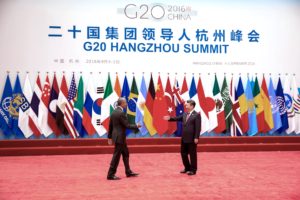
Duterte is significantly enhancing U.S. national security by reducing the risks of starting a conflict with China in the South China Sea. In addition, by downgrading the U.S-Philippines military alliance, he lowers the risk that U.S. forces will be called upon to fight if the Philippines ever does engage in military skirmishes with China.
Duterte’s actions should prompt Americans to ask fundamental questions about the purpose of U.S. military alliances in the region. Does our alliance with the Philippines serve primarily to protect U.S. security, or to generously protect a vulnerable friend against Chinese aggression?
The former rationale is unconvincing: the Philippines were a strategic liability in World War II and are utterly irrelevant today to the defense of the American homeland, which faces no conceivable military threat short of nuclear war.
The United States does not need the Philippines to help protect commercial sea lanes, either. China, with its tremendous dependence on international trade and ocean shipping, has every reason to respect and defend freedom of the seas. China’s expansion in the South China Sea aims to counter U.S. military might and to access undersea resources rather than block commercial shipping.
The second rationale falls away if the Philippines becomes fast friends with China. If our aim is to protect our former colony against aggression, we should applaud the warming of its relations with Beijing.
Ringing China
One remaining rationale for the military alliance is — as China fears — to contain Beijing by ringing it with U.S. bases. The conventional wisdom, reflected in a 2015 report by the Council on Foreign Relations, brands China as “the most significant competitor to the United States for decades to come” and recommends “concertedly building up the capacities of U.S. allies and friends on China’s periphery; and improving the capability of U.S. military forces to effectively project power in the Asia-Pacific region.”
But proud, nationalistic, and ever-richer China will not stand much longer for the humiliation of second-class status in its own neighborhood. The U.S. policy of containment, enshrined if not formally acknowledged in the Obama administration’s “pivot to Asia,” guarantees Chinese hostility and a growing threat of conflict with the United States.
A smarter policy would be to subvert that paradigm by welcoming Duterte’s overtures to China and encouraging other nations in the South China Sea to engage in bilateral or multilateral talks with Beijing.
In 1900, during the height of the brutal U.S. counterinsurgency campaign against Filipino rebels, the anti-imperialist Mark Twain said that instead of trying to conquer the local people, it should “be our pleasure and duty to make those people free, and let them deal with their own domestic questions in their own way.” That remains a good rule of thumb everywhere, but especially in the Philippines today.
Jonathan Marshall is author or co-author of five books on international affairs, including The Lebanese Connection: Corruption, Civil War and the International Drug Traffic . Some of his previous articles for Consortiumnews include “Can Obama Lecture Xi on Human Rights?” “How Arms Sales Distort US Foreign Policy,” “Hiding the Indonesia Massacre Files,” and “Pakistan’s Ticking Nuclear Time Bomb.”
This post was originally published on ConsortiumNews.com
 Geostrategic Media Political Commentary, Analysis, Security, Defense
Geostrategic Media Political Commentary, Analysis, Security, Defense
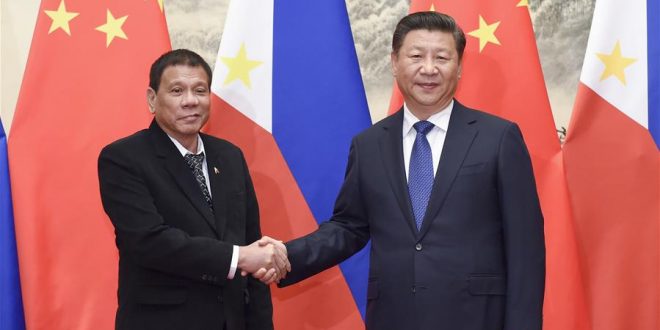

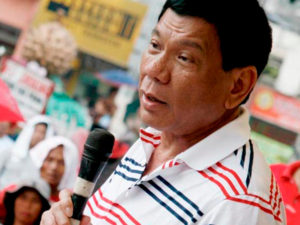
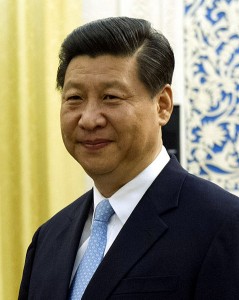
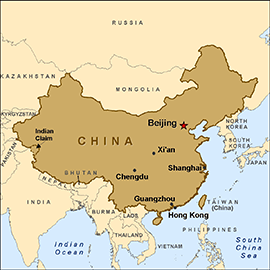
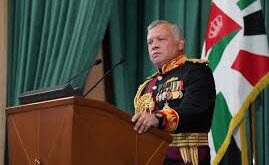



You must be logged in to post a comment.